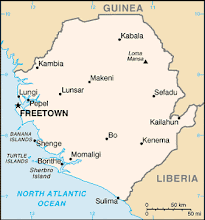01 February 2013
Archived
Posted by
M
at
2/01/2013 04:41:00 PM
0
comments
![]()
26 July 2011
It always feels so short
It always feels so short, but six weeks goes by quickly.
I'm back home, after 156 cases on 77 patients followed by a week in Europe for the wedding of two beautiful people.
Thank you for following. Until next time.
Posted by
M
at
7/26/2011 04:47:00 PM
1 comments
![]()
Labels: Home
11 July 2011
Training, relief, and development
Last week, Agneta took out a man's jaw.
But, before I tell you about that, some background. There is a tension in global health between relief and development. I've written about this before, but to summarize:
Where infrastructure doesn't exist (or does so at a level that barely meets the needs of the population it undergirds), aid comes in two, often mutually exclusive, flavors. At the risk of oversimplification: if attention is focused on the redevelopment of infrastructure, the vast masses of patients who become sick while this infrastructure is being redeveloped are left undertreated. On the other hand, if attention is focused on these patients, the infrastructure is itself undertreated, perpetuating the steady stream of those who need more help than it can provide.
Bridging these two basic paradigms of aid is thorny. Although each is important, each has its stentorian prophets, and development's prophets have, of late, carried the day.
To a (very) large degree, the sort of work that's done on this ship leans toward the less popular of the two, with occasional nods toward development. Sustainability and capacity-building are discussed nearly constantly, local surgeons have been a fixture in the operating room, and agricultural education, mental health education, and primary health education programs form a part of the ship's mandate. (At one point in the last four years there was also a well-digging program; I'm not sure when or why it saw its demise). But, as a whole, we provide relief to the medical infrastructure in the countries we go to.
So, when Agneta took out a jaw last week, it was more than just an operation.
Dr. Agneta Odera is a fourth-year surgical resident at Tenwek Hospital in Kenya. She and two of her Pan-African Academy of Christian Surgeons residency colleagues are on-board for three months, doing month-long rotations in general surgery, anaesthesia, and head and neck surgery. Yesterday, she finished her month with me on the head and neck service.
Agneta is one of the finest residents I've ever gotten the opportunity to train so far in my short surgical career; she has the makings of a great surgeon: she is compassionate, detail-oriented, knowledgeable, and handles tissue like an expert. So, training her wasn't difficult, and last week, she flew solo on a segmental mandibulectomy and reconstruction for a large midline ameloblastoma.
Watching a resident flawlessly perform an operation is always a thrill. Watching her flawlessly perform an operation she had never seen three weeks prior, and knowing that her commitment is to Africa, to surgical development on this continent, and to bucking the brain drain—knowing that she leaves this rotation with at least one measurable, sustainable skill which she can take back with her is more than just a thrill. It is immensely, deeply satisfying.
Posted by
M
at
7/11/2011 06:00:00 AM
0
comments
![]()
Labels: brain drain, residency, Sierra Leone, training





